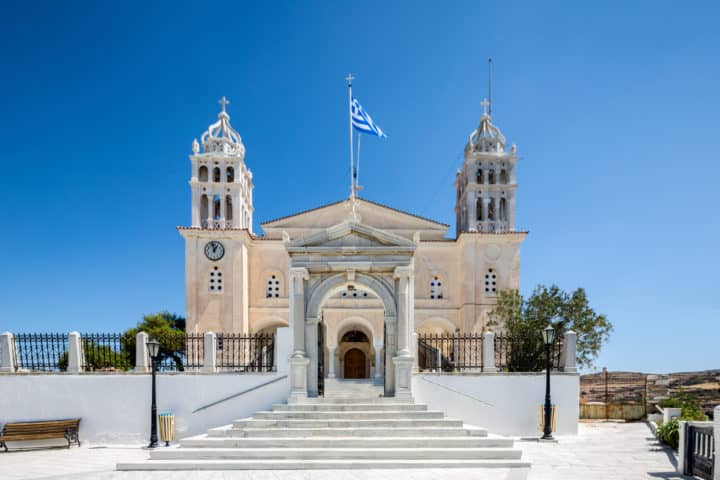 The Byzantine Empire extended throughout most parts of Europe and Asia and Greece was also a part of this. The empire had a distinct and unique culture, and the impact of it is still present in Greece today. There are a number of churches and buildings located all over Greece that hailed from the Byzantine era. You can also find artifacts in museums all over the world. Here’s more information:
The Byzantine Empire extended throughout most parts of Europe and Asia and Greece was also a part of this. The empire had a distinct and unique culture, and the impact of it is still present in Greece today. There are a number of churches and buildings located all over Greece that hailed from the Byzantine era. You can also find artifacts in museums all over the world. Here’s more information:
Religion
During the time of the Byzantine Empire, the citizens of Greece were Orthodox Christians and the country still remains predominantly Christian. In fact, the Byzantine Empire is responsible for the rise of Christianity through out the world. Religious buildings created by the Byzantine Empire still stand in Greece today, which is further proof of the influence of this time period on Christianity. At some point, Catholicism and Orthodox Christianity did split, and this also had an impact on Byzantine culture.
Education
The Byzantine Greeks had a clear, well-defined social structure. The poor were farmers, hunters, and gatherers, relying on their survival skills to eat. The poor also consisted of smiths, tailors, and shoemakers. Education was very important to the Byzantine Greeks. Teachers were generally seen as important members of society and were compensated as such. We still use some of the books that the Greeks used in their schools today. Books such as Aesop’s Fables, the Iliad, and the Odyssey have been used as educational tools for over 1,000 years.
Due to the Greeks’ focus on education, despite much of the Byzantine Empire being illiterate, many in Greek were able to read. Even small villages, filled by peasants and the poor, were fortunate enough to have some form of elementary educational system.
Military
In the Byzantine Empire, the military was highly regarded and it was an important part of the society. The Greek Byzantines in particular stood with tradition, maintaining habits from their lineage. Members of the Byzantine Empire’s military were trained to be medics and technicians in addition to being taught how to fight a battle. New recruits were brought into the military yearly in order to accommodate the Byzantine Empire’s frequent military efforts. Military personnel received benefits, like tax exemption and right of land ownership.
Post-Byzantine Greece
A result of the ideas of Emperor Constantinople, the Byzantine Empire began to falter in the early 1000s. However, it wasn’t until the sacking of Constantinople by the Ottomans in 1453 did the Byzantine Empire truly fall. As for the Greeks, they continued with many traditions, just as they did prior to being under Byzantine control.
Originally named Byzantium, then Constantinople, and now Istanbul, the capital city of the Eastern Roman Empire is now rich in culture and history. The Byzantine Empire lasted over 1,000 years. The empire may have been destroyed almost 600 years ago, but, their accomplishments, architecture, and history can still be observed first hand in Istanbul and all through-out Europe and Asia.

